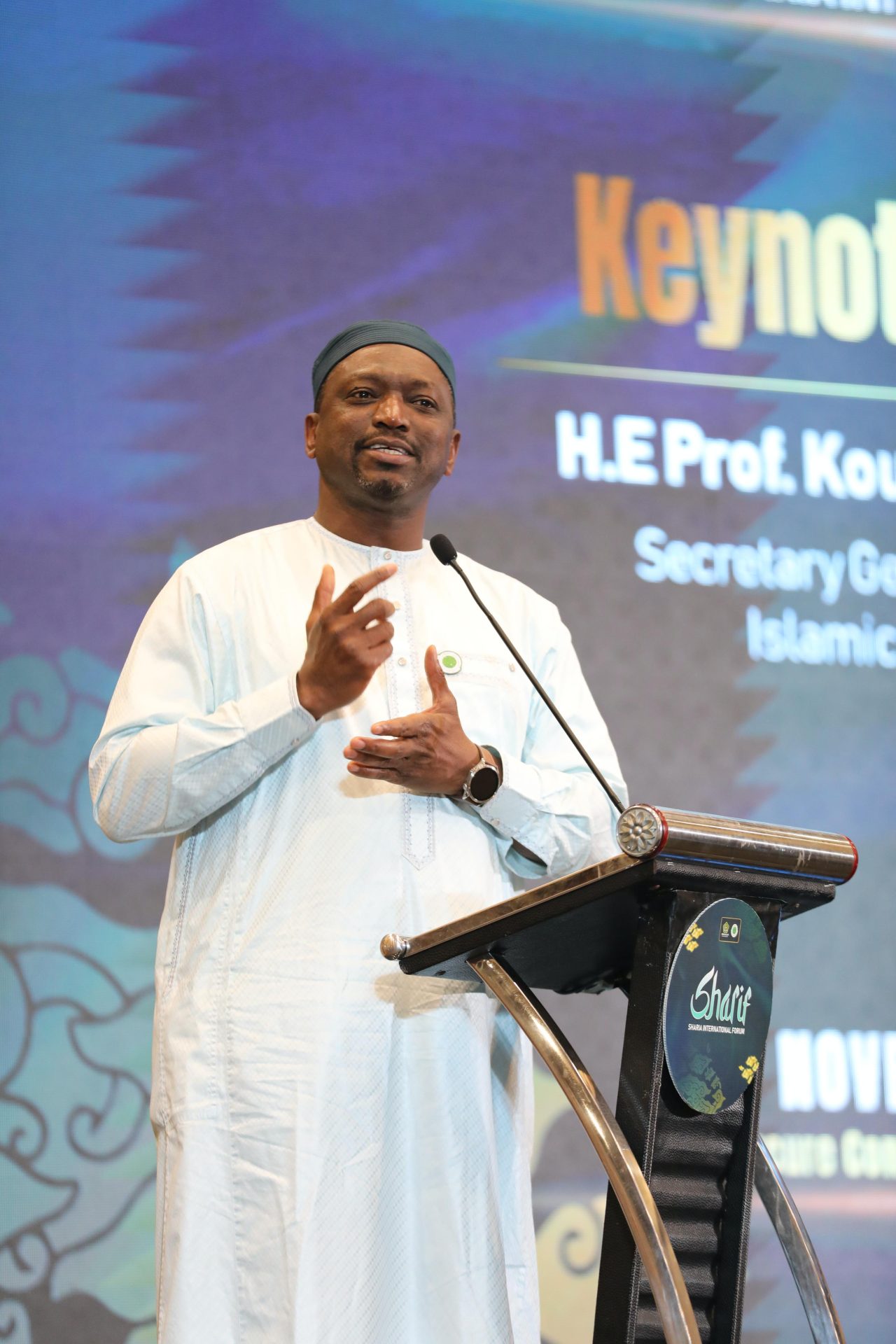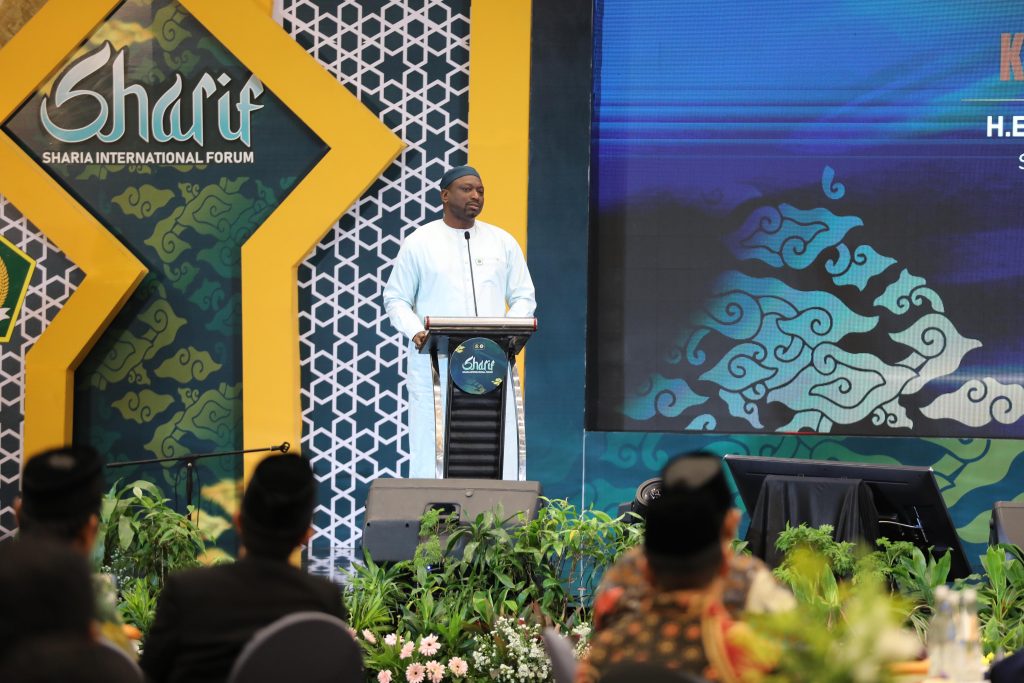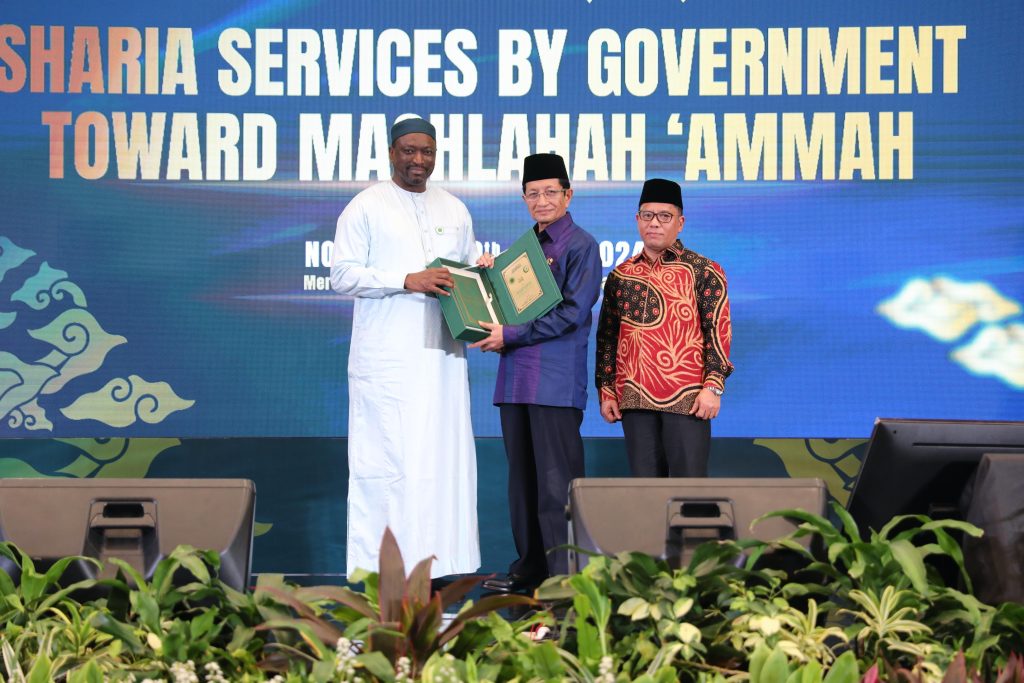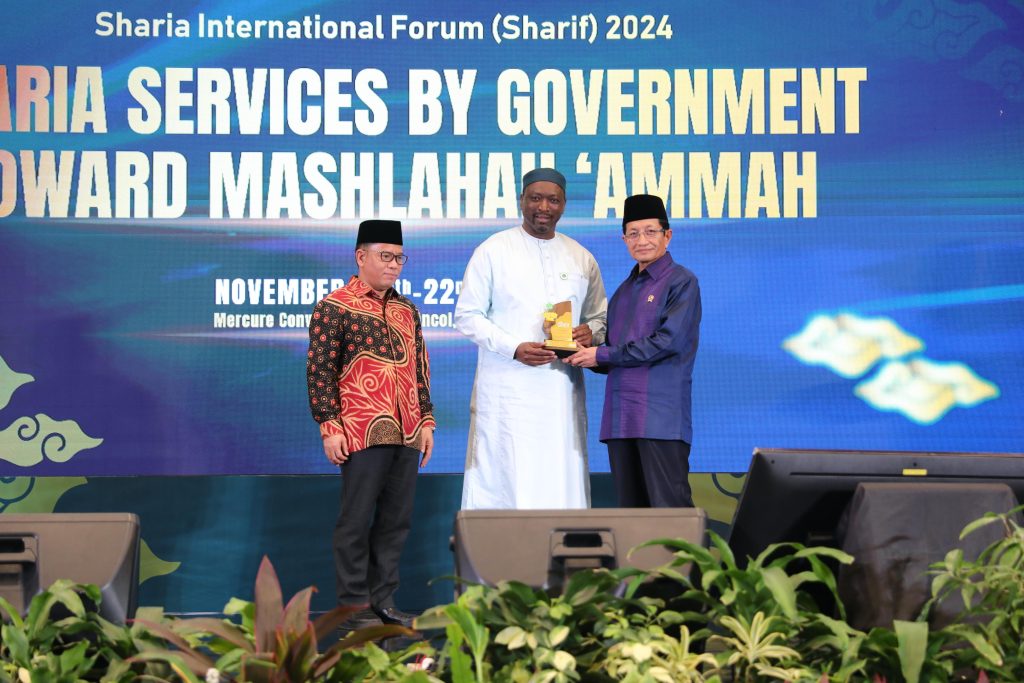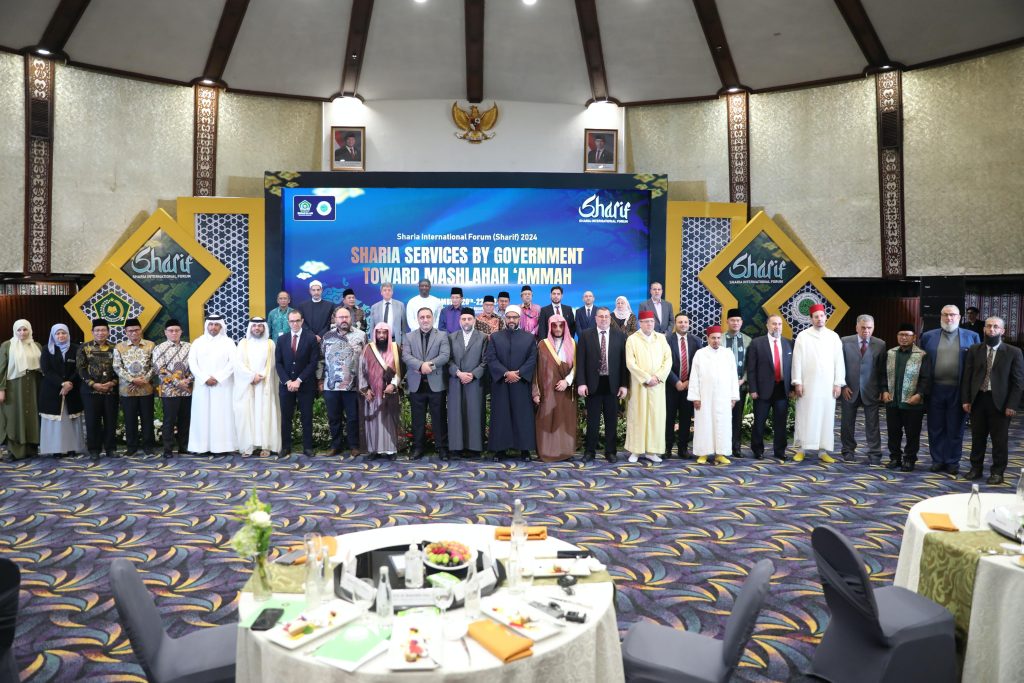
At the special invitation of the Ministry of Religious Affairs of the Republic of Indonesia, H.E. Prof. Koutoub Moustapha Sano, Secretary General of the Academy, participated in the International Sharia Forum, held in Jakarta, on November 20-21, 2024.
His Excellency started the keynote speech of the forum on public interests in Islamic law by congratulating H.E. Prof. Nasruddin Omar on his appointment as Minister of Religious Affairs, praising his distinguished scientific and intellectual outstanding having previously served as the Grand Imam of Istiqlal Mosque in the capital. His Excellency also conveyed the sincere thanks of the President of the Academy, H.E. Sheikh Dr. Saleh bin Abdullah bin Humaid, members and experts of the Academy to the government and people of Indonesia for their attention and support to the International Islamic Fiqh Academy.
Furthermore, His Excellency then commended the organizing committee for the selection of the title of the international forum, as the doctrine of “massalih” or public interests is one of the most critical legislative guides that the Ummah’s scholars and intellectuals should use in addressing contemporary issues wisely and efficiently, due to the flexibility and breadth of this evidence that highlights and confirms the appropriateness of Islam for every time and place. He pointed out the importance of taking into account the interests of the people, whether when considering new issues and developments or when weighing between opinions and jurisprudence woven around various issues, stressing that Sharia is based on caring for the interests of the people in the living and the dead, as emphasized by Imam Ibn Qayyim al-Jawziyyah in his valuable book Il’aam al-Muwaqi’in, quoting: “Sharia is built and founded on wisdom and interests of the people in the living and afterlife, which is all justice, all mercy, and all wisdom, so every topic that goes out of from justice to injustice, from mercy to its opposite of mercy, from benefit to harm, and from wisdom to futility, is not actually from Sharia” He explained that the Companions, particularly the Rashidun Caliphs, used to employ the evidence of interests to guide them, citing examples such as the Compilation of the Qur’an, the Collection of Hadith, the addition of a second adhan to the Friday call to prayer, and other issues that were decided based on the consideration of interest. His Excellency also explained that interest means bringing all that is beneficial and preventing all that is harmful, and this interest is divided according to its source into considerable interests, canceled interests, and correspondent interests. The considerable interests are the benefits that must be brought, and the texts of the Quran and the Sunnah are obligated to clarify and stipulate them and include the commands and obligations. The cancelled interests include all the prohibitions that the texts of the Quran and Sunnah have mentioned in canceling them and disregarding them. As for the correspondent interests, these are the benefits and disadvantages that lie between the two types of interests referred to before, and these are the interests that are not mentioned in the Quran and Sunnah as obligatory to bring or obligatory to prevent, which makes them the subject of continuous ijtihad (juristic efforts) and tajdid (renewal) in all ages. This type of interest is valid for the new developments that arise from time to time in the lives of people in every era and area, and the people of knowledge and expertise must state the ruling of the Sharia after balancing the benefits and harms resulting from their consideration or abolition. In this regard, His Excellency pointed out the necessity of resorting to collective ijtihad when considering these issues and novelties, considering that it is the safest and most secure ijtihad because it includes the opinions of a significant number of mujtahids, unlike individual ijtihad, which is not guaranteed to be familiar with all aspects surrounding these issues and novelties.
His Excellency concluded his speech by expressing favorable response to the Indonesian Ministry of Religious Affairs studying contemporary issues and developments, and guiding people’s religiosity and promoting the approach of moderation and tolerance. His Excellency concluded his speech by emphasizing that the Academy continues to study contemporary issues and developments through its seminars, conferences and sessions, praising the State of Qatar’s approval to host the 26th session of the Academy, to be held in Doha next May, which include the analysis of several new issues relating to worship, family, financial transactions, and others.
At the end of the opening ceremony, the Indonesian Minister presented a commemorative shield to the Secretary General of the Academy, who gifted him the book of Resolutions and Recommendations of the Academy. It is worth adding that delegates from Saudi Arabia, Qatar, UAE, Morocco, Tunisia, Palestine, Malaysia, and Brunei participated in the event.
Read Also
Lastest
